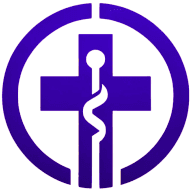3 Surprising Discoveries in Healthcare Research
Recent breakthroughs in healthcare research have unveiled startling discoveries that are reshaping medical practices. From revolutionary treatments for infectious diseases to groundbreaking insights in diabetes screening and patient recovery, these findings are transforming the landscape of modern medicine. Drawing on expert knowledge from the forefront of medical science, this article explores the unexpected developments that are poised to impact healthcare delivery and patient outcomes.
- Penicillin Discovery Revolutionizes Infectious Disease Treatment
- Genetic Variant Reshapes Diabetes Screening Policies
- Natural Light Exposure Accelerates Patient Recovery
Penicillin Discovery Revolutionizes Infectious Disease Treatment
The most influential breakthroughs in healthcare often stem from accidents that expose our blind spots, rather than from chasing trends or funding headlines.
Penicillin was discovered not through genius but through neglect. Alexander Fleming returned from vacation to find a mold contaminating one of his staphylococcus cultures, which had killed surrounding bacteria. It took years for others to scale and test it, but when they did, it revolutionized infectious disease treatment. Before penicillin, a mild infection could be fatal. After its discovery, penicillin saved tens of millions of lives globally and reshaped the future of antibiotic development. That single lab accident became the foundation for a $40 billion pharmaceutical market.

Genetic Variant Reshapes Diabetes Screening Policies
An Unexpected Genetic Insight in Diabetes Prevention
During my search of the metabolic risk factors in a community health initiative, I found an interesting genetic trend among patients of East African origin. Although they had low BMI and active lifestyles, most of them had an early onset of type 2 diabetes. This went against the typical risk profile and motivated us to dig deeper into it.
Working with a genomics group, we identified a particular gene variant that heightened insulin resistance, irrespective of one's body weight. This discovery was the impetus for changing our screening policies, which now include proposing screening for at-risk populations, regardless of their traditional risk indicators, diagnoses, or risk factors.

Natural Light Exposure Accelerates Patient Recovery
During a recent research project on patient recovery times after surgery, I discovered that simple factors like natural light exposure in hospital rooms had a much greater impact than we initially expected. We were focused on clinical variables, but when analyzing data, it became clear that patients in rooms with ample natural light recovered faster and reported less pain. This was surprising because it highlighted how environmental and psychological factors play a critical role in healing, beyond just medical treatment. The discovery was significant because it prompted our hospital to redesign patient rooms to maximize natural light, leading to improved recovery rates and patient satisfaction. It reinforced for me the importance of looking beyond traditional metrics and considering holistic factors in healthcare research.


